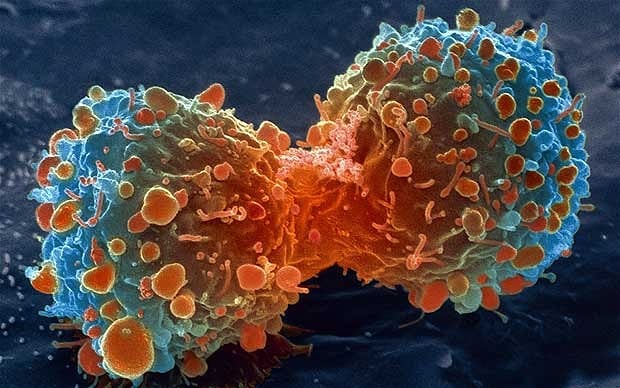Scientists in the UK say they have found proteins in the blood that could warn people of cancer more than seven years before it is diagnosed.
In two studies funded by Cancer Research UK, scientists identified 618 proteins linked to 19 types of cancer, including colon, lung, non-Hodgkin lymphoma and liver.
The proteins included 107 associated with cancers diagnosed more than seven years after the patient’s blood sample was collected, and 182 that were associated with a cancer diagnosis within three years.
In the first study, scientists studied blood samples from more than 44,000 people in the UK Biobank, including over 4,900 people who subsequently had a cancer diagnosis.
They found the proteins by comparing those present in people who did go on to be diagnosed with cancer and those who did not.
In the second study, the scientists looked at genetic data from over 300,000 cancer cases to find which blood proteins were involved in cancer development and could be targeted by new treatments.
The scientists found 40 proteins in the blood that influenced someone’s risk of getting nine different types of cancer.
The scientists concluded that some of these proteins could be used to detect cancer much earlier and potentially provide new treatment options.
‘FURTHER RESEARCH REQUIRED’
They however cautioned that further research is needed.
Ruth Travis, senior author of both studies, said to be able to prevent cancer, there needs to be an understanding of the factors driving the earliest stages of its development.
“These studies are important because they provide many new clues about the causes and biology of multiple cancers, including insights into what’s happening years before a cancer is diagnosed,” she said.
“We now have technology that can look at thousands of proteins across thousands of cancer cases, identifying which proteins have a role in the development of specific cancers, and which might have effects that are common to multiple cancer types.”







